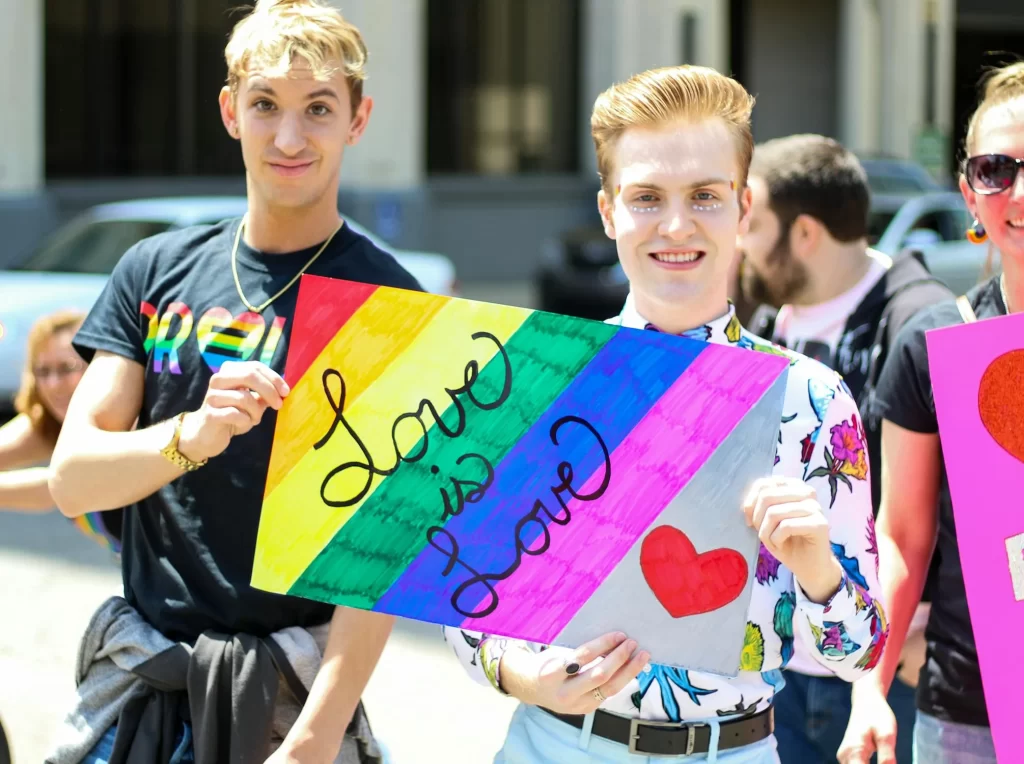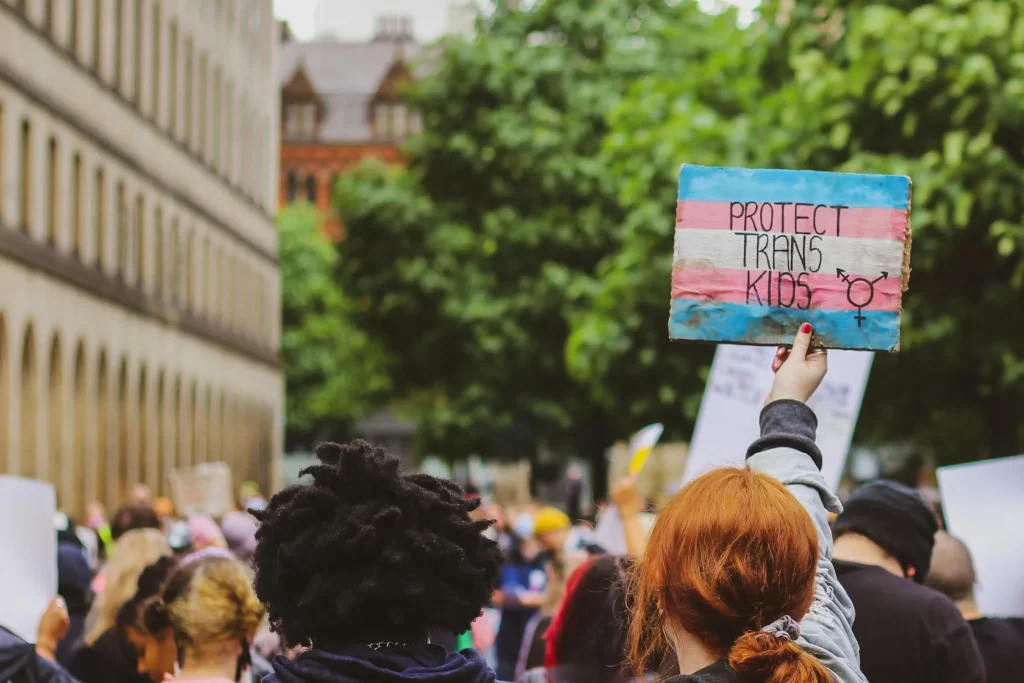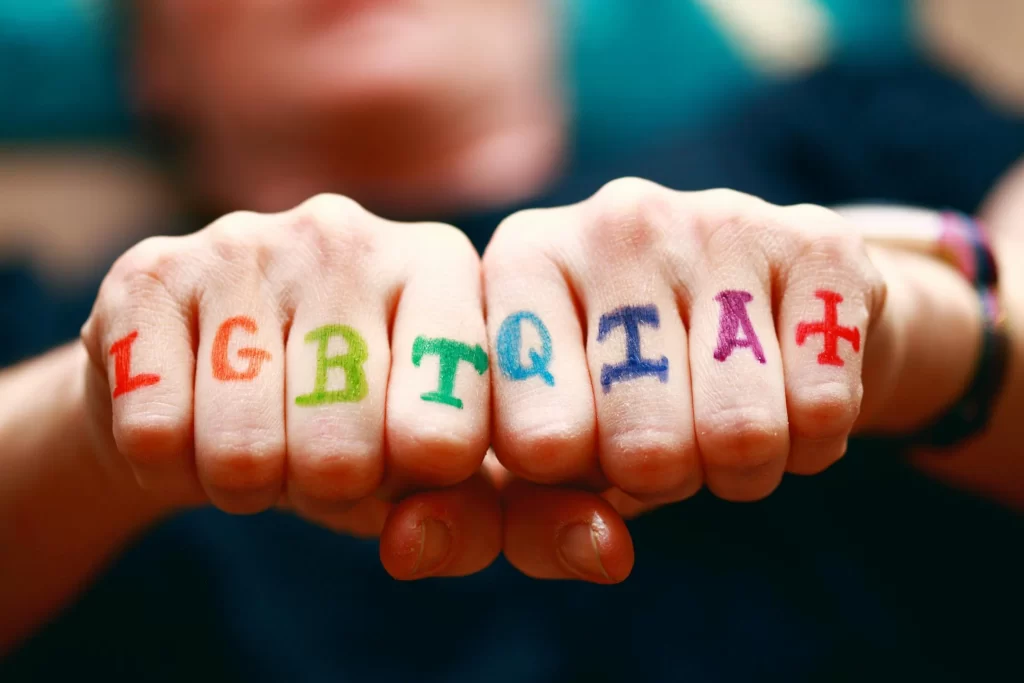By Katie Potocnik Medina, LCSW
Senior Psychotherapist
In recent years, the LGBTQIA+ community has confronted a barrage of challenges as various states enact anti-LGBTQIA legislation, spanning from discriminatory policies to outright bans on rights and protections. These laws not only violate basic human rights but also profoundly impact the mental health and well-being of LGBTQIA+ individuals and communities.
The Mental Health Toll of Anti-LGBTQIA Legislation
The enactment of anti-LGBTQIA legislation exacerbates existing societal stigma, discrimination, and marginalization experienced by LGBTQIA+ individuals. Research consistently demonstrates the detrimental effects of discrimination and prejudice on mental health. According to studies by The Trevor Project, LGBTQIA+ youth residing in states with anti-LGBTQIA legislation are more likely to experience depression, anxiety, and suicidal ideation compared to their peers in more inclusive environments.
The psychological impact extends beyond individuals to entire communities, fostering a climate of fear, mistrust, and uncertainty. The constant threat of discrimination and legal sanction contributes to heightened stress levels, diminished self-esteem, and a sense of isolation among LGBTQIA+ individuals and allies. Moreover, the erosion of civil rights and protections reinforces feelings of invisibility and devaluation, perpetuating a cycle of psychological distress and disenfranchisement.
Therapy and mental health support play pivotal roles in mitigating the adverse effects of anti-LGBTQIA+ legislation on individuals and communities. Access to affirming and culturally competent mental health services is essential for LGBTQIA+ individuals navigating the psychological toll of discrimination and marginalization. Therapy provides a safe space for processing complex emotions, exploring identity-related challenges, and developing coping strategies to navigate hostile environments. By destigmatizing help-seeking behaviors and promoting mental health awareness, we can empower LGBTQIA+ individuals to prioritize their well-being and seek the support they deserve.

Prioritizing Community Care
In the face of adversity, community care becomes a vital lifeline for LGBTQIA+ individuals seeking solace, support, and solidarity. Building and nurturing supportive networks within and beyond the LGBTQIA+ community fosters resilience and collective empowerment. Peer support groups, online forums, and LGBTQIA+ – affirming spaces offer avenues for connection, validation, and mutual aid, providing sanctuary amidst hostile environments.
Cultivating a culture of care entails centering marginalized voices, amplifying diverse narratives, and fostering inclusive spaces that celebrate the richness and complexity of LGBTQIA+ identities. Promoting empathy, active listening, and allyship creates a culture of belonging where everyone feels seen, heard, and valued for their unique experiences and perspectives.

Advocacy
Engaging in advocacy can also serve as a therapeutic outlet for individuals impacted by anti-LGBTQIA+ legislation. For many, the act of advocating for themselves and their communities can instill a sense of empowerment and agency in the face of discrimination and marginalization. It provides a platform to voice concerns, share experiences, and connect with others who share similar struggles. However, it’s important to acknowledge that advocacy can be emotionally exhausting, and individuals should only engage when they feel prepared to do so.
Through advocacy, individuals can find a sense of purpose and belonging as they work towards creating a more just and inclusive society. It allows them to channel their frustrations and anger into productive action, fostering resilience and hope amidst adversity. Advocacy can serve as a powerful tool for healing and transformation, both at the individual and collective level.
As we confront the far-reaching implications of anti-LGBTQIA legislation, it is imperative to acknowledge and address the profound mental health toll on individuals and communities. Through collective action, compassionate care, and unwavering advocacy, we can create spaces of healing, resilience, and empowerment for LGBTQIA+ individuals, affirming their inherent worth and dignity in the face of adversity.
References
- The Trevor Project. (2021). 2021 National Survey on LGBTQ Youth Mental Health.
- Hatzenbuehler, M. L., et al. (2010). Structural stigma and all-cause mortality in sexual minority populations. Social Science & Medicine, 71(4), 589-597.
- Meyer, I. H. (2003). Prejudice, social stress, and mental health in lesbian, gay, and bisexual populations: conceptual issues and research evidence. Psychological Bulletin, 129(5), 674-697.




